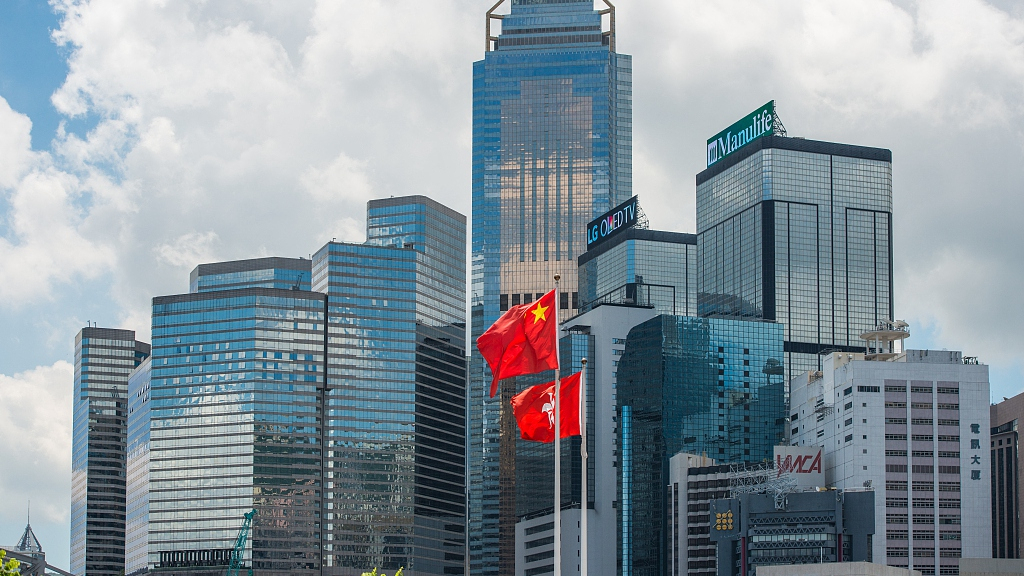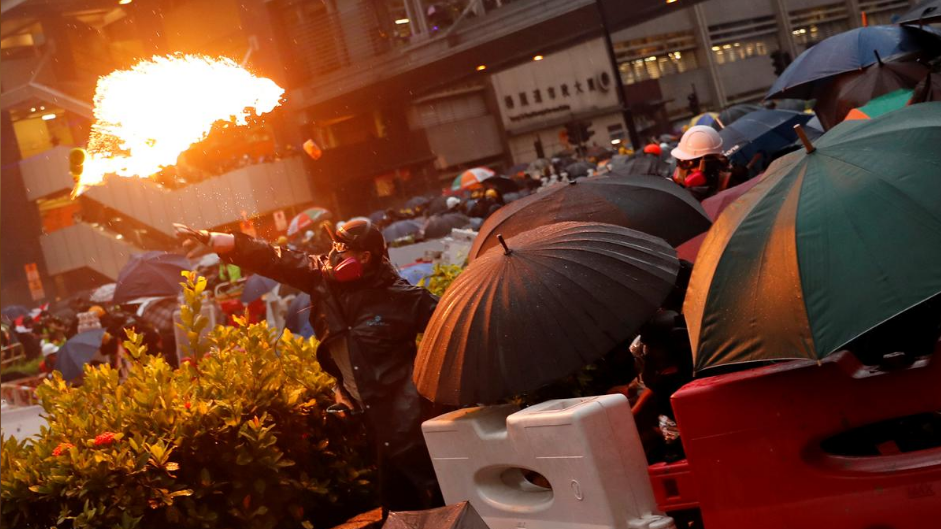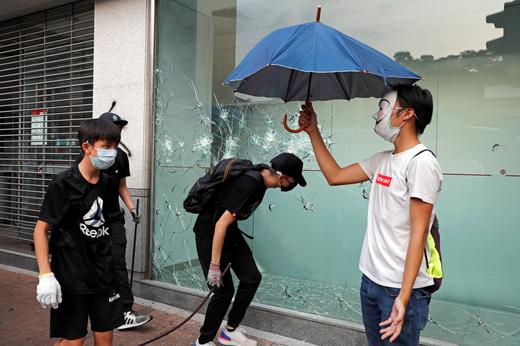
Editor's Note: Tom Fowdy is a British political and international relations analyst and a graduate of Durham and Oxford universities. He writes on topics pertaining to China, the DPRK, Britain, and the United States. The article reflects the author's opinion, and not necessarily the views of CGTN.
The U.S. House of Representatives passed the Hong Kong Human Rights and Democracy Act in their first session on Tuesday night. The bill, backed by prominent members of the U.S. congress, will now proceed to the Senate for a vote where it is also expected to pass.
In doing so, American politicians have expressed solidarity with "activists" in the city who have extensively lobbied Washington for the passage of the act, with Denise Ho and Joshua Wong having visited a month ago.
However, this law should be understood as nothing more than an obvious act of opportunism with the intent of implicitly advancing American foreign policy goals under a facade of democracy and human rights.
Although the Western media refuse to accept or voice any other narrative as legitimate, the United States wants to create a hostile periphery in Hong Kong, making it a backdoor for broader geopolitical ambitions.
The evidence lies within the document itself, which in fact unilaterally obligates the city to follow suit with America's sanctions and technology agenda, or threatens its "special status" as a free port and customs territory.
In doing so, Washington is purposefully giving a green light to continuing unrest and disorder – all with the broader objective of undermining China.

Violent protesters throw petrol bombs at the police in Tsuen Wan, Hong Kong, China, August 25, 2019. /Reuters Photo
Violent protesters throw petrol bombs at the police in Tsuen Wan, Hong Kong, China, August 25, 2019. /Reuters Photo
The United States has a long and extensive history of utilizing the rhetoric of human rights as a means to an end in securing broader political agendas, which is always applied selectively and consistently.
On the matter of Hong Kong, significant evidence contravenes their narrative that Beijing is disrupting its autonomy. The Heritage Foundation, a U.S. conservative think tank, gives Hong Kong a freedom score of 90.2 percent, giving it high ratings on the matter of property rights and government integrity. It praises the city for its intolerance of corruption and adherence to the rule of law.
In addition, whilst a specific narrative has been espoused concerning the police, in practice law enforcement and riot response mechanisms are not synonymous with suppression of freedom of assembly. Hong Kong police in the process of this have not killed any protesters. Thus, the United States is passing an exaggerated and opportunistic narrative concerning the city.
Why so? The answer is geopolitics. By seeking to empower the protesters, American politicians aspire to establish Hong Kong as a hostile periphery, de facto separate from and thus antagonistic to the Chinese mainland, in the bid to pursue the broader agenda against the country.
The evidence lies within the act text itself, which goes far beyond a concern for liberty. Section 5, for example, demands that Hong Kong follows suit with United States "sanctions and export controls."
This means, in effect, if the United States unilaterally sanctions someone (even if it is from China), the city must follow suit with it. It goes on specifically to list "sensitive dual list" and "controlled sensitive technology," which thus demands that Hong Kong also enforces U.S. technology blacklistings such as Huawei and others.
It also attempts to prohibit the city from attaining technology that may be used by the Chinese mainland for items such as the Social Credit Program. Finally, it also requires Hong Kong to follow unilateral sanctions against Iran and the DPRK.

A protester wearing a mask walks past a damaged bureau of Bank of China in Hong Kong, China, October 5, 2019. /Reuters Photo
A protester wearing a mask walks past a damaged bureau of Bank of China in Hong Kong, China, October 5, 2019. /Reuters Photo
In this case, the bill is a broader means to an end to an extensive geopolitical agenda which involves effectively exporting America's trade and technology wars into China's territory itself and thus attempting to leverage the city into something that is permanently differentiated and thus antagonistic to the Chinese mainland and its national interests.
In this case, Beijing is not exaggerating nor acting out of opportunism when it describes these mechanisms as an open intervention in its internal affairs and an attempt at separatism.
In doing so, Washington hopes that their support will generate momentum for continued unrest in the city. Seeing this, the most radical "activists" will see a green light which tells effectively they can do no wrong, thus enabling and perpetuating their pursuit to destroy property, cause chaos and then demonize the police for their retaliation.
However, the text of this bill makes it all clear: This is a broader and very explicit game by the United States in an attempt to contain and divide China itself. If the media continue to accept the "democracy" narrative at face value, then they are not being honest with the facts.
(If you want to contribute and have specific expertise, please contact us at opinions@cgtn.com.)